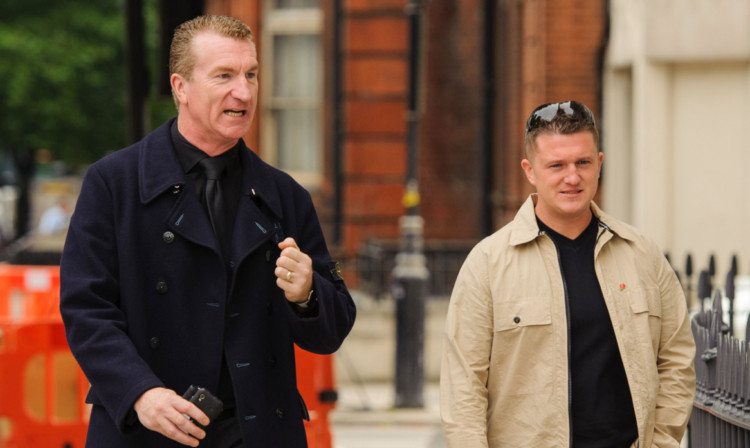Two leaders of the far-right English Defence League are leaving the group.
Tommy Robinson and Kevin Carroll, who set up the controversial group in 2009, announced their departure through counter-extremism think tank Quilliam.
They were said to have decided to leave because they can no longer “keep extremist elements at bay”.
As the unexpected news emerged, Mr Robinson tweeted: “hope people listen to my reasons”.
In a statement issued through Quilliam, he said: “I have been considering this move for a long time because I recognise that, though street demonstrations have brought us to this point, they are no longer productive.
“I acknowledge the dangers of far-right extremism and the ongoing need to counter Islamist ideology not with violence but with better, democratic ideas.”
The EDL, started in response to a demonstration by Muslim extremists as soldiers marched through Luton, has become infamous for street protests across the country, often resulting in violence as its members clashed with opposing groups such as Unite Against Fascism.
Outspoken Mr Robinson, who has been arrested several times, has become a significant figure and has conducted several television interviews, including one with the BBC in the wake of the death of Fusilier Lee Rigby in Woolwich earlier this year.
Quilliam, which calls itself the “world’s first counter-extremism think tank”, said it is helping Mr Robinson move away from the group and put his energy into countering extremism.
It called for other members of the EDL to follow in his footsteps, and for Islamist extremist leaders to also leave their respective groups.
Chairman and co-founder Maajid Nawaz said: “As well as being a very positive change for the United Kingdom, this is a very proud moment for Quilliam.
“This represents not a change but a continuation for us, as challenging extremism of all kinds forms the basis of our work.
“We have been able to show that Britain stands together against extremism regardless of political views and hope to continue supporting Tommy and Kevin in their journey to counter Islamism and neo-Nazi extremism.”
The think tank is hosting a press conference for Mr Robinson and Mr Caroll at an “undisclosed location” this evening, it said.
